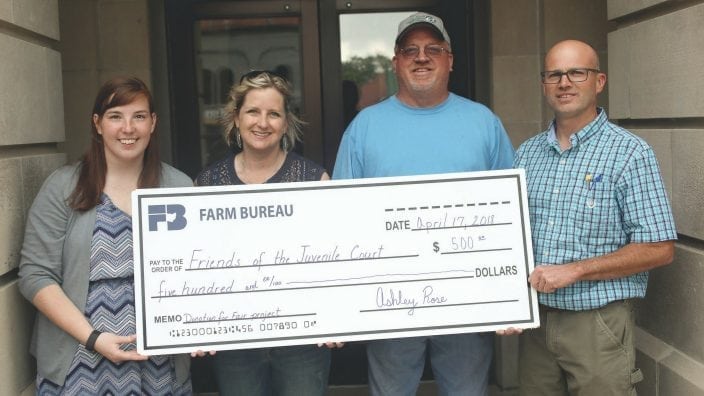Applications for Ohio Farm Bureau Health Plans now available
Members have three ways to apply: contacting a certified agent, calling 833-468-4280 or visiting ohiofarmbureauhealthplans.org.
Read MoreThe timing was perfect. The Clinton County teenager was nearing the completion of his court-ordered counseling and community service but still could use some guidance and attention. Dawson had been through a lot over the past year, losing two relatives in a short span of time and missing so much school that he’d been charged with truancy. One person who had been helping him was Chad Mason, the juvenile court’s community service coordinator. One day in 2017, Mason turned the tables, asking the teen for help. “If you don’t have anything to do after school, how about raising a hog to show at the fair as part of a new program I’m testing out,” Dawson recalls Mason asking him.

The new program was a 4-H club, Bacon & Bits, to be run by the court. With the help of 4-H advisers, at-risk youths would raise an animal to show at the county fair. The goal was to help the youths develop positive life skills, boost their self-confidence and increase their desire to get involved and make a positive impact in the community.
“Some of these kids’ environments are so negative. They need positive role models — that someone cares about them and their grades,” Mason said. “They get that through this program. When they’re treated with respect, they tend to give it back and are more likely to stay out of trouble.”
Although Dawson was “clueless” about how to take care of an animal, he agreed, figuring it would be interesting. Besides, it would get him out into the country and away from his apartment where he’d be tempted to play video games all day.
Before Dawson knew it, he was on a farm, meeting his pig, which he named Rose because of her reddish tint. Almost every day last year, he fed, groomed, cleaned and walked the pig and watched in amazement as she gained almost 100 pounds. He attended 4-H meetings to learn all about hogs, including animal care, anatomy, disease, feed and meat science. He overcame his nervousness and successfully showed Rose at the fair. Along the way, he bonded not only with his hog but his 4-H adviser, Roger Mason, Chad’s uncle.
“Roger and Chad are really good people. I had a great time showing my hog and enjoyed the experience with them,” Dawson said. “It gave me a lot of responsibility and was fun. I’d recommend anybody who has the chance to do it.”
Chad Mason couldn’t be more pleased with Dawson’s glowing recommendation. Growing up on a farm and being involved in 4-H had been a positive experience for Mason, and he wanted the same for youths going through the juvenile court system. Many times, the at-risk youths had very limited access to activities outside of school due to lack of support from home and limited financial resources.
“We’re always looking for ways to teach kids responsibility. What better way than to have them learn how to nurture and take care of an animal,” Mason said. “It’s all about showing kids they can use their energy elsewhere and in a positive way. The goal is to teach them responsibility and keep them out of the (court) system.”
Before Mason could start the 4-H club, he had several obstacles to overcome: approval and funding of the project and housing for the hogs. Approval was perhaps the easiest. Signing off on the program were 4-H supporters Deanne Whalen, the court’s chief probation officer, and juvenile court Judge Chad Carey. At a cost of about $500 to buy and feed a 4-H hog, Mason knew funding could be an issue. Fortunately, businesses, individuals and organizations came through by donating money and supplies, including Clinton County Farm Bureau, which donated $1,000 over two years. “The response from the community has been wonderful,” Mason said. “They really want these kids to succeed.”
Helping get the program off the ground was the Clinton County 4-H Swine Committee, run through Ohio State University Extension, as well as farmers who donated pigs. Friends and family members offered to be club advisers and provide housing for the hogs.
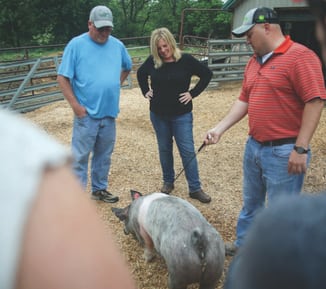
“We’re really excited about this program because we’re capturing a group of kids who really could use something like 4-H. One of the teens last year liked 4-H so much that he came to the 4-H camp even though it wasn’t required,” said Tracie Montague, 4-H youth development educator for Clinton County, as she watched 15-year-old Joe* rub skin conditioner onto one of his hogs this spring. Joe is one of five youths participating this year in the program, which has grown from three to five teenagers. The teens are showing not only hogs but rabbits and goats as well as one doing an art project.
Before he even got his two pigs this past April, Mike* had already started his project. He and his father fixed up a lean-to on their property to house his pigs, which he named Maple and Chris based on the flavor and characteristic of bacon (Chris is short for crispy). The 14-year-old was named secretary of the 4-H club and quickly embraced learning about his hogs. Although the Clinton County Fair was still three months away, he was already looking forward to being in the show-ring.
“I’ve never really been to the fair. Every time it was going on, I had to work like baling hay. Now I’ll have to go,” he laughed as he fiddled with his white cowboy hat.
For Dawson, having a mentor like Roger Mason meant so much to him that he feels guilty he doesn’t have much time to visit because of his busy school and work schedules. After his family members died, Dawson said he felt lost at times. Now he says his life is back on track and he’s focused on the future instead of the past. He displayed his maturity when he said he wanted to work a year after graduating from high school to save money for college.
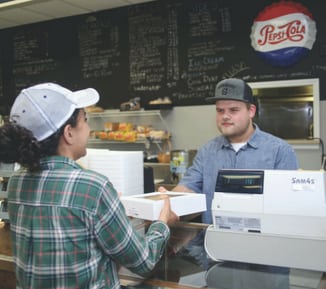
“I want to have some in dependency and not ask for money all the time,” said the 19-year-old who aspires to be a counselor some day.
“Proud” is the word that comes to mind when Roger Mason thinks of how to describe his experience with Dawson. The two spent a lot of time on the farm working and talking and enjoying the occasional chocolate milkshake at the local UDF store after a long day. A special outing was traveling to Cincinnati to watch the Reds play and sitting just four rows up from first base, using tickets donated to the 4-H club.
“Dawson was always one of those likeable kids. He’d always say ‘please’ and ‘thank you.’ He just needed something to do to stay out of trouble,” Roger Mason said. “Going through this program, he’s gained a lot more self worth and is more proud of himself.”
*Names of minors in this article were changed at the request of the court.
Through its community of 100 public universities, 4‑H reaches kids in every corner of America – from urban neighborhoods to suburban schoolyards to rural farming communities. Its network of 500,000 volunteers and 3,500 4‑H professionals provides caring and supportive mentoring to all 6 million 4‑H’ers, helping them grow into true leaders today and in life.
Feature photo: Clinton County Farm Bureau has helped finance the 4-H club. From left are Farm Bureau Organization Director Ashley Rose, Clinton County Farm Bureau President Beth Ellis, 4-H adviser Roger Mason and Chad Mason, community service coordinator for the juvenile court.


Members have three ways to apply: contacting a certified agent, calling 833-468-4280 or visiting ohiofarmbureauhealthplans.org.
Read More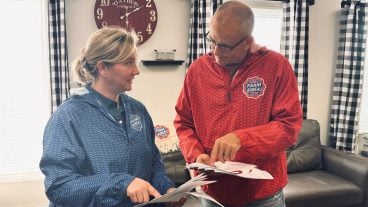
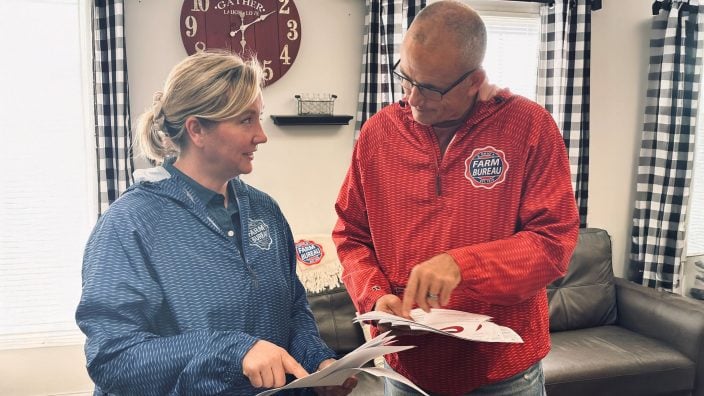
One of the best decisions Shannon and Heather Utter made a few years ago was looking into a Farm Bureau member benefit that has ended up saving them thousands of dollars on their energy bills.
Read More

Ryan Hiser has experienced first-hand the importance of having the opportunity to vote on issues that will affect his family operation and other farmers.
Read More
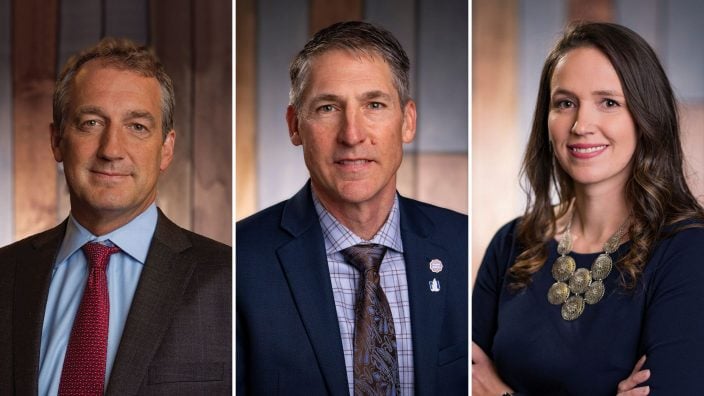
Bill Patterson, Cy Prettyman and Adele Flynn will continue to serve as officers for Ohio Farm Bureau Federation.
Read More

Delegates discussed many topics impacting agriculture including farmland preservation, local foods, and succession planning.
Read More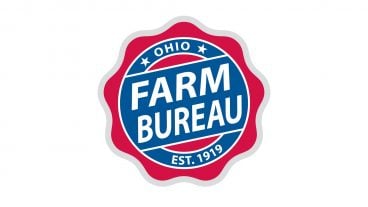
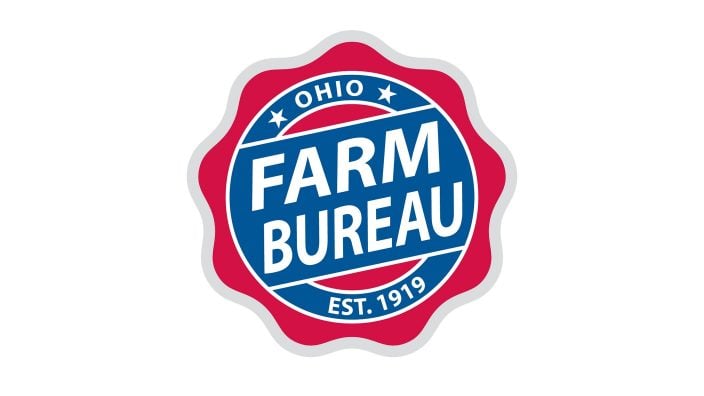
Twenty-six farmers govern the state’s largest farm and food organization.
Read More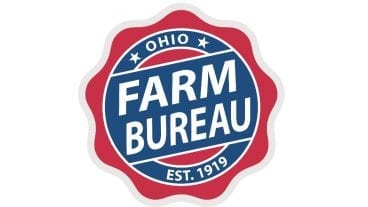
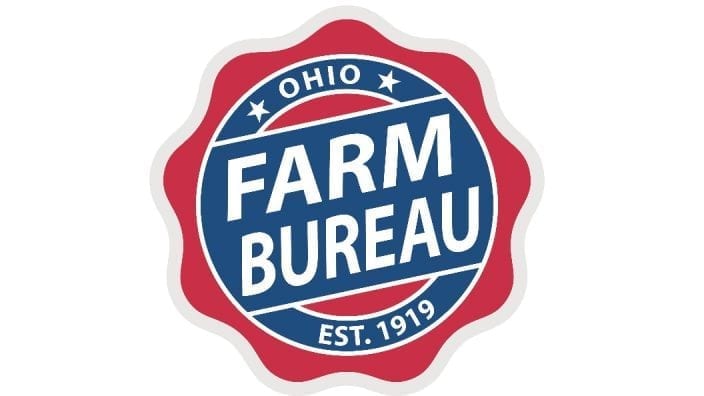
The 2025 recipients are Fred Cooke (posthumous) of Richland County, Marvin Dietsch of Williams County, Steven Knollman of Hamilton County and Michele Miller (posthumous) of Ottawa County.
Read More
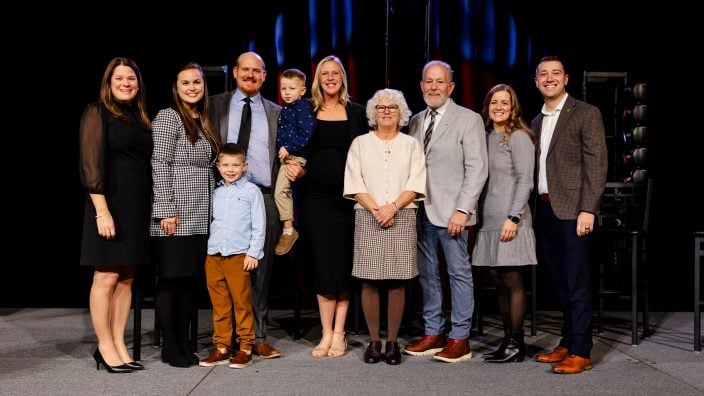
Nathan and Jill Parriman grow seasonal crops, including Christmas trees, pumpkins and cut flowers, providing U-cut experiences that invite customers to engage directly with agriculture.
Read More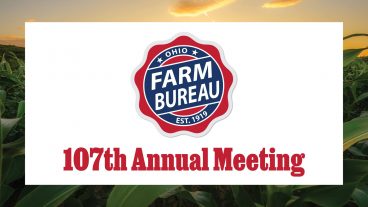
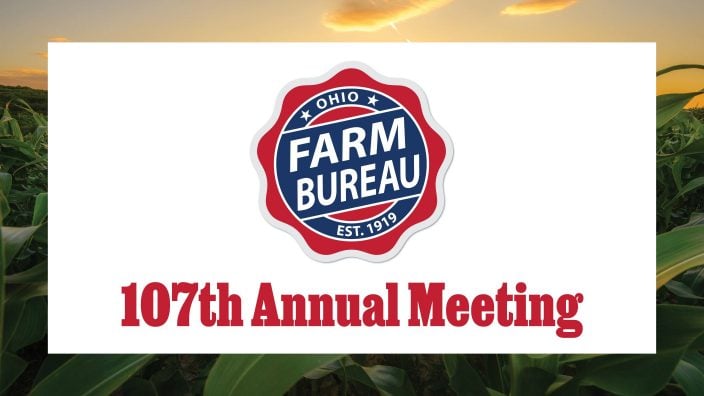
The 2025 Distinguished Service Award recipients are Craig Adams, Mike Townsley, and Kellogg Farms, Kurt Farms and Stateler Family Farms.
Read More

Ohio Farm Bureau Treasurer Adele Flynn participated in the meeting, representing Ohio farmers.
Read More